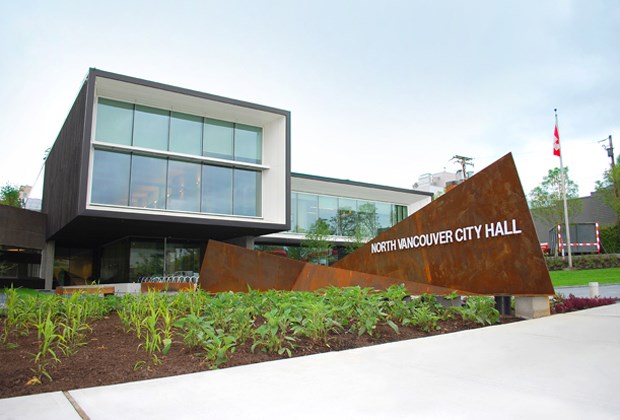Local mayors say a new report that points to significant "downloading" of costs from senior levels of government on to municipalities paints an all-too-familiar picture.
But they also reacted angrily to another report on public sector pay, which suggests municipal workers' salaries are too high.
The duelling reports, which both deal with local government finance, were released as local politicians met this week in Whistler for the annual Union of B.C. Municipalities convention. Both reports point to the sometimesstrained relationship between municipalities and the province - but in very different ways.
Who's Picking Up the Tab by the Columbia Institute, a left-wing think tank, points to a trend over the past several decades of federal and provincial governments downloading services on to municipalities, while at the same time cutting back their funding.
"It's a pattern that's been going on for the past 20 years," said District of North Vancouver Mayor Richard Walton.
Changes in cost-sharing agreements for services like police, increased wastewater treatment and drinking water regulations and cutbacks to health and social services at senior levels of government mean local governments have had to pick up the slack and find millions more dollars despite their limited tax base, according to the report.
At the same time, transfers from the province fell from about 10 per cent of municipal budgets in 1995 to three per cent in 2002, according to the report.
Walton said some of the biggest impacts have come from senior government cutbacks to mental health and housing.
Mental health issues now take up huge amounts of police time - paid for by local government. When grants to services like the Youth Safe House are cut back, "inevitably they turn to us," he said. "It's very seldom the tap is turned back on."
The federal government is responsible for housing, yet money for subsidized housing has all but dried up in recent decades, said City of North Vancouver Mayor Darrell Mussatto. When people realize their children won't be able to afford to live in the community, "they come and bang on our door," he said.
Mussatto pointed to new federal drinking water guidelines that resulted in Metro Vancouver having to build a $1 billion filtration plant and changes to sewage regulations that will require local government to build a new $700 million Lions Gate treatment plant.
Mussatto added in the past, the province used to give municipalities unconditional grants to help pay for services. But those have been cut, he said.
Both mayors said it's increasingly difficult to find the money to provide all the services requested by the public from property taxes and user fees. "Our property tax is pretty much maxed out," said Mussatto.
But another report, completed by the firm Ernst & Young, suggested one area local governments could cut back is salaries. The report - leaked by the Canadian Taxpayers Federation - stated municipal salaries grew 38 per cent between 2001 and 2012, while salaries for provincial workers went up 19 per cent during that period. The report said many senior municipal managers earn more than deputy ministers, with chief administrators in North Vancouver city and district earning the third and fourth highest salaries.
The report also stated municipalities have a higher proportion of their workforce earning more than $75,000 than the province, and suggested the province come up with some way of reining in municipal payrolls.
But both Mussatto and Walton said the consultants didn't verify any of the data, charging some of the figures are inaccurate. In some cases, inflated salary figures were the result of retroactive pay increases or retirement payouts, they said.
Walton added it's not fair to compare municipal managers' jobs to the work of provincial deputy ministers.
"You have to look at the nature of the job," he said. "There's a lot of backroom folk in Victoria who never have to deal with any angry mob."



